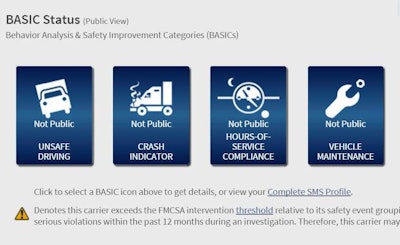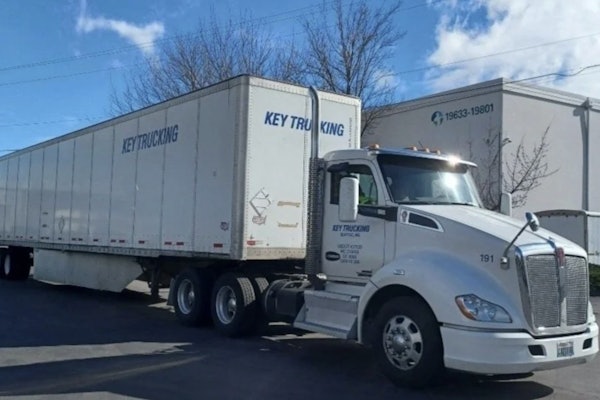 Though SMS BASIC alerts and percentile rankings are no longer available for public view, they’re still used by enforcers, Rajkovacz says, and some type of credit in the SMS could help owner-operators and small carriers, if included in a voluntary compliance program.
Though SMS BASIC alerts and percentile rankings are no longer available for public view, they’re still used by enforcers, Rajkovacz says, and some type of credit in the SMS could help owner-operators and small carriers, if included in a voluntary compliance program.Large carriers do stand to benefit from a potential federal program to reward carriers for voluntary safety investments or other “beyond compliance” initiatives, says Joe Rajkovacz of the Western States Trucking Association, but that’s no reason for owner-operators and other small carriers to oppose such a program, Rajkovacz told CCJ late last week.
Rajkovacz, a former owner-operator himself, offered a second take on the potential beyond compliance program following the mostly negative opinions expressed against such a program last week at a public FMCSA listening session. WSTA plans to file its formal comments with FMCSA soon, Rajkovacz said.
 Joe Rajkovacz
Joe RajkovaczLast week’s public session was short on guidance for FMCSA to consider in developing the program and long on apprehensive commentary by owner-operators, who expressed concerns that the program would heavily favor larger carriers and potentially become a new industry standard in compliance, which could cost owner-operators business, commenters argued. You can read my coverage of the listening session at this link for more.
Rajkovacz, meanwhile, encouraged owner-operators and other small carriers to, instead of “just saying no,” make their ideas heard to FMCSA about how owner-operators and small business truckers could benefit from the beyond compliance program. An “anti-everything” approach, he says, “[squelches] meaningful dialogue that could, if truckers actively participate, build some forgiveness into [CSA’s] Safety Measurement System. It isn’t going away,” he said.
Despite a recent move by Congress and FMCSA to hide SMS rankings from public view, enforcers are still using the system to target carriers for intervention. And scores/rankings are still requested of carriers by shippers and insurers, Rajkovacz said, making the system ripe for incentivizing via a voluntary compliance program.
From Joe’s email:
If a small carrier is close to or over an intervention threshold within a BASIC in the SMS, why shouldn’t they be able to do something beyond the minimal regulatory requirements and get some extra credit that reduces the percentile ranking or eliminates them being in alert status? Currently, even with the methodology flaws, there is nothing someone can do about deficient scores other than let time pass or attempt to get as many clean inspections as possible (which isn’t really a viable strategy for a number of reasons). Violations happen. I’ve been tagged with them and they were legit.
If someone is exceeding a threshold in [the] Unsafe Driving [BASIC], how about giving them credit for taking and successfully completing the Smith System (training course)? If they are in trouble in the Vehicle Maintenance BASIC, it’d sure be nice to get credit for taking a course from the likes of Bendix on foundation brakes. Hours-of-service? How about HOS refresher training through a trade association? It’s not all about high-tech add-ons but just about anything truckers could suggest that leads to safety improvements.
Rajkovacz says it’s perfectly fine to oppose a regulatory measure, but truckers and small carriers effectively forfeit their seat at the table by simply shaking their heads at regulatory proposals.
“If you lose, why wouldn’t you at least try to get the best deal possible? FMCSA is being asked to think outside the box. Owner-ops and small businesses should too,” he said. “I don’t claim to know everything, but it would sure be nice to find out some ideas from truckers out there not buying into the gospel of ‘Just say no.’”











